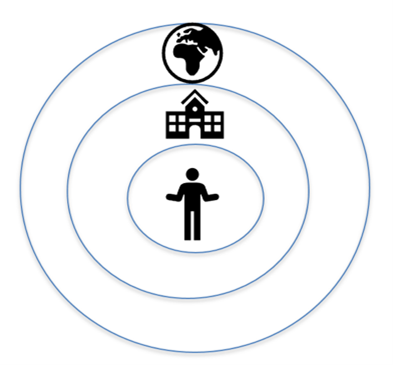News
Well-being is not a me problem
On 4 July, T@UU council member Marij Swinkels and T@UU project leader Femke van de Glind organised a session about student and staff well-being during the Teaching and Learning Inspiration Days. In the two-yearly event, staff engaged with teaching can follow workshops, inspiration sessions, and round table discussions to enhance their teaching skills.
In the T@UU council, well-being of staff and students (and the intersection between them) is a recurring theme that we monitor. That’s why we decided to host an interactive workshop about this topic. Key to the workshop was challenging the idea of well-being issues as an individual issue, and the policies that come with that, and rather acknowledging that this issue exists in a bigger context. The inspiration of this session came from a USO project hosted by the Utrecht School of Governance ‘Werken aan je welzijn’ (Working towards well-being), in which staff and students collectively explored well-being issues.
During our session, we discussed the often-diffuse data regarding well-being issues. We showed percentages of staff and students experiencing work pressure or study stress as well as numbers indicating students that risk burn-out or that have physical complaints. We questioned what these numbers mean or tell us if they were recognisable and/or representative for ourselves and students. The participants recognised these numbers, even though they don’t tell the full story. But also discussed that these number can sometimes hide parts of the truth.
We then further explored different factors that impact well-being on a public, organisational, and individual level. Some individual factors that impact well-being could be personality traits, adaptivity and resilience and personal circumstances. At the university level, rules and procedures, informal norms and the structure of the educational programme could play a part. And at the societal level, societal problems, flexibilisation and FOMO (social media pressure) can be present.

As participants discussed, these levels are intertwined and have an effect on each other. As a result, we asked participants to make a drawing of themselves within the system of the university. Some re-emerging themes in these drawings were the connectedness and multiplicity of tasks and roles within the university (colleagues, students, and supervisors), the question of ‘doing the right thing’ and being true to yourself. Another recurring theme was balance, how to balance social life and work/study life (also with bigger societal changes).
The exercise is one example to kick-start a discussion on the layered issue of well-being in groups, one that can be easily set-up with students and staff in a safe environment.
We hope the session inspired some teaching staff further. If you are interested to learn more about the set-up of the module “Working towards well-being”, don’t hesitate to contact us. If you have suggestions for the T@UU council to further work on this topic, please do let us know.
 17 July 2023
17 July 2023
If you want to comment, please login on the left side of the page with your UU account..


